
AI in Academic Medicine Webinar Series
-
Register
- User - Free!
With artificial intelligence (AI) offering so many opportunities across academic medicine, the AAMC is convening and connecting our community. This free webinar series will share strategies and exemplars in the field to help grow your knowledge and advance your practice.
This learning series will explore critical concepts, the current landscape, and practical strategies drawn from various perspectives and institutions to support you in navigating the evolving world of AI in academic medicine. Sessions will feature resources and best practices that you can apply across various settings, as well as time for Q&A with the featured speakers.
When you register, we will notify you as we add each new offering. If you register, and can't attend the live webinar, you will have access to the archive recording.
-
Contains 2 Component(s) Includes a Live Web Event on 09/25/2025 at 1:00 PM (EDT)
This session will highlight key AI use cases aimed at streamlining administrative and operational tasks.
This session will highlight key AI use cases aimed at streamlining administrative and operational tasks. First, we will describe the development of DOMINIQ (Dept of Medicine’s Interactive Navigator for Inquiries & Queries), a secure chatbot that simplifies access to policies in finance, HR, academic affairs, IT, and more. Next, we will examine how workflows in research administration, clinical revenue, and faculty productivity can be improved by applying AI to Python scripting, complex Excel formulas, and MS Power Automate. Lastly, we will delve into an innovative use case where leaders engage in reflective dialogue with GPT models to enhance their interpersonal communication skills. Overall, this session will provide practical insights into how AI can drive productivity and improvements across various operational areas.
Natalya Maisel, PhD
Division Manager, Division of Clinical Informatics and Digital Transformation (DoC-IT)
University of California, San Francisco Department of MedicineMaria Novelero, MA, MPA
Associate Chair for Administration
University of California, San Francisco Department of MedicineJon Rueter, MBA
Director of Research Administration and Revenue Management
University of California, San Francisco, School of MedicineAaron Tabacco, PhD
Director of Staff Experience
University of California, San Francisco Department of MedicineSara Wingate, MA
Project Manager
University of California, San Francisco, School of Medicine -
Contains 2 Component(s) Recorded On: 06/12/2025
The academic medicine community must harness the opportunities presented by AI to improve clinical care and medical education, while minimizing unwanted consequences for our patients, our learners, and our profession.
The academic medicine community must harness the opportunities presented by AI to improve clinical care and medical education, while minimizing unwanted consequences for our patients, our learners, and our profession. A report in an upcoming special issue of Academic Medicine offers medical educators a path forward in the form of recommendations and specific action steps, which emerged from the Josiah Macy Jr. Foundation Conference on AI and Medical Education, held in November 2024. This webinar will be moderated by Alison Whelan, MD, FACP, Chief Academic Officer, AAMC, and will feature an interactive, implementation-focused discussion with some of the authors of the recommendations report.
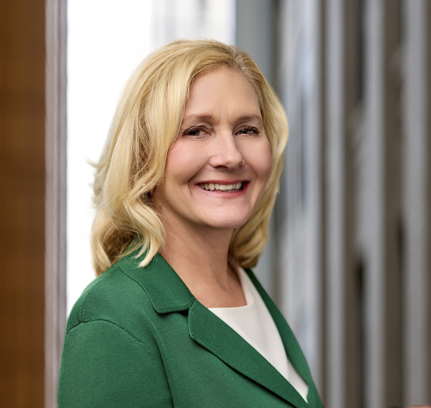
Eva Aagaard, MD, FACP
Carol B. and Jerome T. Loeb Professor of Medical Education, Vice Chancellor for Medical Education, and Senior Associate Dean for Education
Washington University School of Medicine
A practicing general internist, in her current leadership role, Dr. Aagaard oversees medical education across the continuum including undergraduate (UME), graduate (GME) and continuing medical education, as well as allied health professional and graduate training. This includes recently spearheading a large-scale curriculum reform effort in the MD program, revisioning PhD education, and promoting the development of multiple initiatives to promote the career development and success of educators on campus. Nationally she led development of the Society of General Internal Medicine TEACH Program and partnered to develop the MedEd Scholarship Faculty Development Program. Internationally she developed the Health Education Advanced Leadership Program in Zimbabwe (HEALZ).
Dr. Aagaard is a former member of the American Board of Internal Medicine Specialty Board, former Council Member for the Society of General Internal Medicine, and participates actively with the National Board of Medical Examiners as a reviewer for licensing exam content. She served as a core member of the Milestones in Internal Medicine Writing Committee and Milestones 2.0, leading to the Next Accreditation System at the Accreditation Council for Graduate Medical Education. Her areas of interest include curriculum reform, competency-based education and assessment, particularly as it relates to the UME to GME transition, and remediation. She is passionate about mentoring, coaching and sponsorship, and speaks widely on these topics. She has won more than 16 awards for clinical excellence, teaching, and humanism in medicine, including the University of Colorado’s President’s Teaching Award, the Society of General Internal Medicine Mid-Career Mentoring Award, the Elizabeth Gee Award for the Advancement of Women, and the Washington University Distinguished Faculty Award.
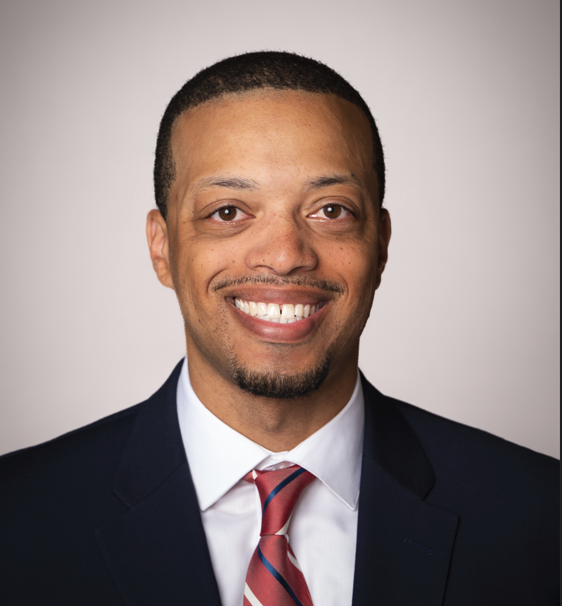
Cornelius James, MD
Assistant Professor, Departments of Internal Medicine, Pediatrics and Learning Health Sciences
University of Michigan
Dr. James is an Assistant Professor in the Departments of Internal Medicine, Pediatrics and Learning Health Sciences at the University of Michigan (U-M). He is a general internist and a general pediatrician practicing as primary care physician.
Dr. James has served in many educational roles across the continuum of medical education, including serving as the director of the University of Michigan Medical School evidence-based medicine curriculum, and an Associate Program Director for the U-M Internal Medicine Residency Program. He serves on the local and national committees, including the U-M Clinical Intelligence Committee and the International Advisory Committee for Artificial Intelligence. Additionally, he is a Co-Editor for the MedEdPORTAL Artificial Intelligence Collection, and he is on the Academic Medicine editorial board.
In 2022, he received the Kaiser Permanente Excellence in Teaching award, the most prestigious teaching award given by the U-M medical school. He currently holds the James O. Woolliscroft, MD Endowment Award in Humane Patient Care.
Dr. James was one of ten inaugural 2021 National Academy of Medicine Scholars in Diagnostic Excellence. In addition, as a 2025 Macy Faculty Scholar he is studying the collaboration of interprofessional health care teams using artificial intelligence.
His research interests include augmenting clinical reasoning with artificial intelligence, and implementation of safe and effective digital health technologies into clinical practice.
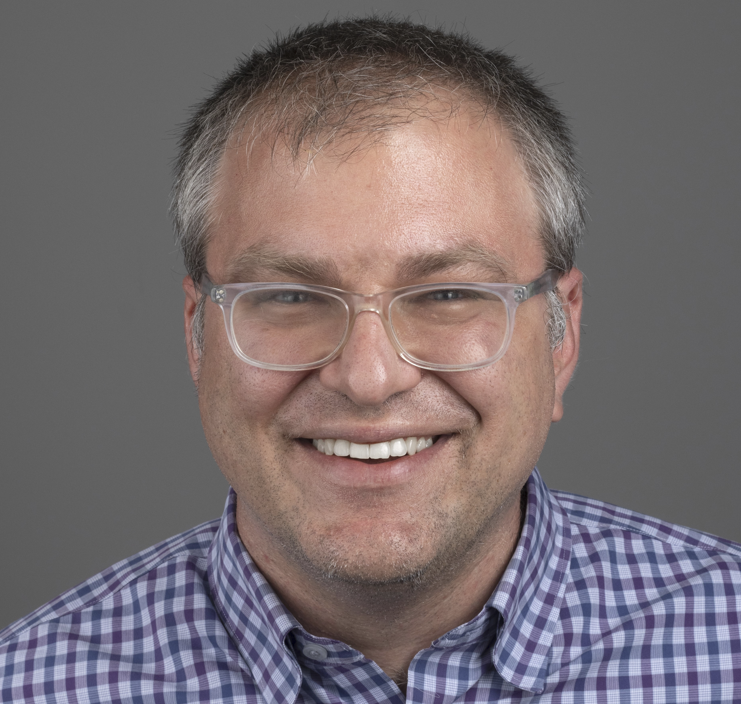
Adam Rodman, MD, MPH, FACP
Assistant Professor
Harvard Medical School
Adam Rodman is a general internist and medical educator at Beth Israel Deaconess Medical Center and an assistant professor at Harvard Medical School. He is the Director of AI Programs for the Carl J. Shapiro Center for Education and Research, and he leads the steering group for integration of AI into the medical school curriculum. He is also an associate editor at NEJM AI. His research focuses on medical education, clinical reasoning, integration of digital technologies, and human-computer interaction, especially with AI. His first book is entitled "Short Cuts: Medicine," and he is the host of the American College of Physicians podcast Bedside Rounds.
Adam completed his residency in internal medicine at Oregon Health and Science University in Portland, OR, and his fellowship in global health at Beth Israel Deaconess Medical Center while practicing in Molepolole, Botswana. He lives in Boston with his wife and two young sons.
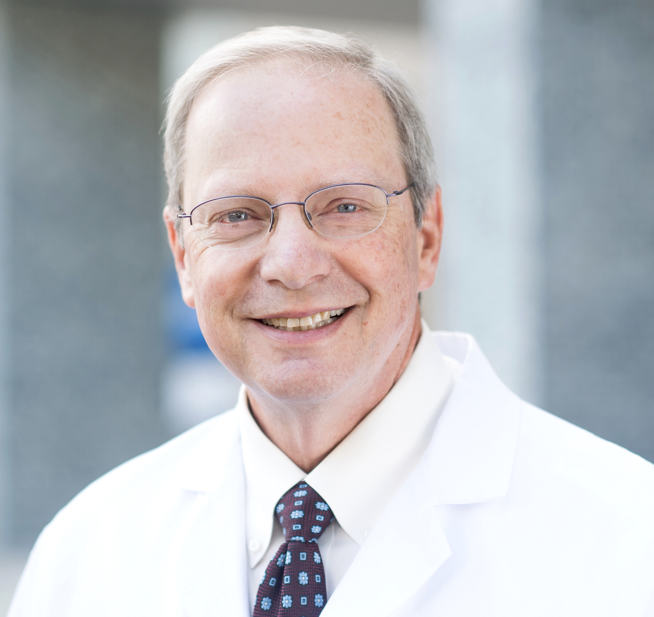
Robert Wachter, MD
Professor and Chair of the Department of Medicine
University of California, San Francisco
Robert M. Wachter, MD, is Professor and Chair of the Department of Medicine at the University of California, San Francisco (UCSF). Author of 300 articles and six books, Wachter coined the term “hospitalist” in 1996 and is often considered the “father” of the hospitalist field, the fastest growing specialty in the history of modern medicine. He is past president of the Society of Hospital Medicine, past chair of the American Board of Internal Medicine, and an elected member of the National Academy of Medicine. In 2015, Modern Healthcare magazine ranked him as the most influential physician-executive in the U.S. His 2015 book, The Digital Doctor: Hope, Hype and Harm at the Dawn of Medicine’s Computer Age, was a New York Times science bestseller. In 2020-23, Wachter’s tweets on Covid-19 were viewed more than 500 million times by 275,000 followers and served as a trusted source of information on the clinical, public health, and policy issues surrounding the pandemic. His new book, A Giant Leap: How AI is Transforming Healthcare – and What That Means for Our Future, will be published in late 2025.

Alison J. Whelan, MD, FACP
Chief Academic Officer
AAMC
Alison J. Whelan, MD oversees efforts that prepare and assist deans, faculty leaders, educators, and future physicians for the challenges of 21st century academic medicine. She leads a staff that addresses critical medical school data, administrative, and operational issues; explores new models of successful mission alignment; focuses on key student and faculty issues; transforms current models of education and workforce preparation across the full continuum of medical education; and supports medical school accreditation activities.
Prior to joining the association in 2016 as Chief Medical Education Officer, Dr. Whelan served as Professor of Medicine and Pediatrics at Washington University School of Medicine in St. Louis. She held multiple education roles: course director, clerkship director, curriculum dean and ultimately was appointed the inaugural Senior Associate Dean for Education. In this role she oversaw the continuum of medical education from medical school admissions through CME.
Dr. Whelan received her bachelor’s degree from Carleton College in 1981. She earned her medical degree from Washington University in 1986 and completed her postgraduate work and residency at the former Barnes Hospital, now Barnes-Jewish Hospital. Dr. Whelan is an internist and clinical geneticist.
-
Contains 2 Component(s) Recorded On: 05/22/2025
Curious how to successfully plan and execute faculty development around artificial intelligence (AI)? In this session, facilitators from the AAMC Group on Education Affairs (GEA) pull back the curtain on how to design and implement impactful AI faculty development in medical education.
Curious how to successfully plan and execute faculty development around artificial intelligence (AI)? In this session, facilitators from the AAMC Group on Education Affairs (GEA) pull back the curtain on how to design and implement impactful AI faculty development in medical education. As part of the session, you will walk away with tangible AI faculty development tips and tricks and learn about ways to engage in upcoming GEA-hosted virtual faculty development.
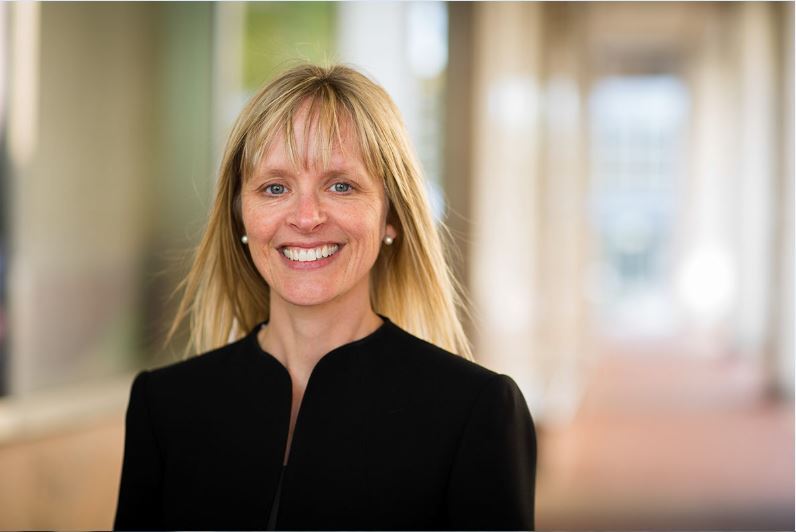
Elissa Hall, EdD, MA (Facilitator)
Director, Advanced Digital Education
Co-Director, Harper Family Foundation Artificial Intelligence Education in Medicine Program
Mayo Clinic Alix School of MedicineDr. Elissa Hall, EdD, MA, is an Assistant Professor, Director, Learning and Technology Innovation, and Associate Director, Education Science for the Mayo Clinic College of Medicine and Science. Dr. Hall serves as the Chair, Association of American Medical Colleges Central Group on Education Affairs (AAMC CGEA), Course Director, Harvard Macy Institute(HMI), and Outreach, The Generalists in Medical Education(TGME). She is passionate about teaching, learning, and technology and fortunate to actively contribute for over 20 years in these areas across the education continuum (secondary, undergraduate, graduate, and health professions education). She loves the outdoors, and you will find her engaging in activities including fat tire biking, paddleboarding, and running.
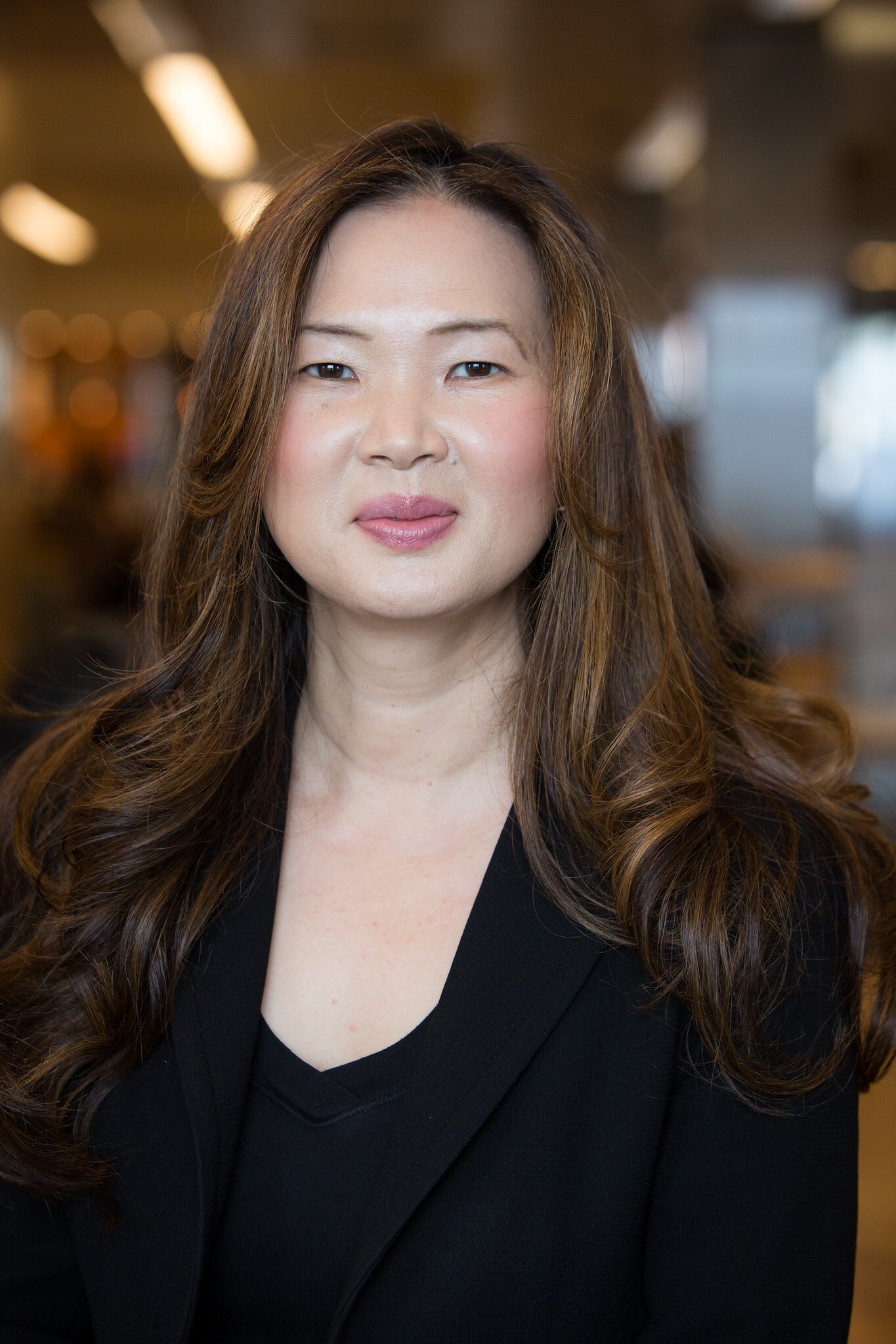
Christy K. Boscardin, PhD
Professor, Department of Medicine
Professor, Department of Anesthesia
Director of Assessment
Director of Artificial Intelligence
Director of Medical Education Scholarship for Department of Anesthesia
UCSF Office of Medical EducationChristy Boscardin, PhD, is a professor in the Department of Medicine and Department of Anesthesia and Perioperative Care and the Director of Artificial Intelligence and Student Assessment in the School of Medicine. Dr. Boscardin is also the Director of the Medical Education Scholarship for the Department of Anesthesia. She is internationally recognized for expert on assessment, artificial intelligence, data science, and implementation science. Dr. Boscardin is currently the statistical editor for Perspectives on Medical Education, and on the editorial board for Teaching and Learning in Medicine.

Marta Korytkowska PhD, CCC-SLP
Director, Educational Technology and Strategy
Icahn School of Medicine, Mount SinaiMarta Korytkowska, PhD, CCC-SLP, is the Director of Educational Technology and Strategy at the Icahn School of Medicine at Mount Sinai. In this role, she collaborates across departments to integrate innovative technologies and instructional design into health professions education. With a PhD in Cognitive Science and a background as a certified speech-language pathologist, Dr. Korytkowska brings a unique blend of clinical expertise, research insight, and instructional experience to curriculum development. She has led multiple institutional initiatives at the intersection of education and artificial intelligence, with a focus on reducing cognitive load and enhancing learning outcomes. Her work spans through various levels of medical education, and she is passionate about creating effective, and engaging learning environments. Outside of her professional work, she enjoys traveling, yoga, and learning new things.
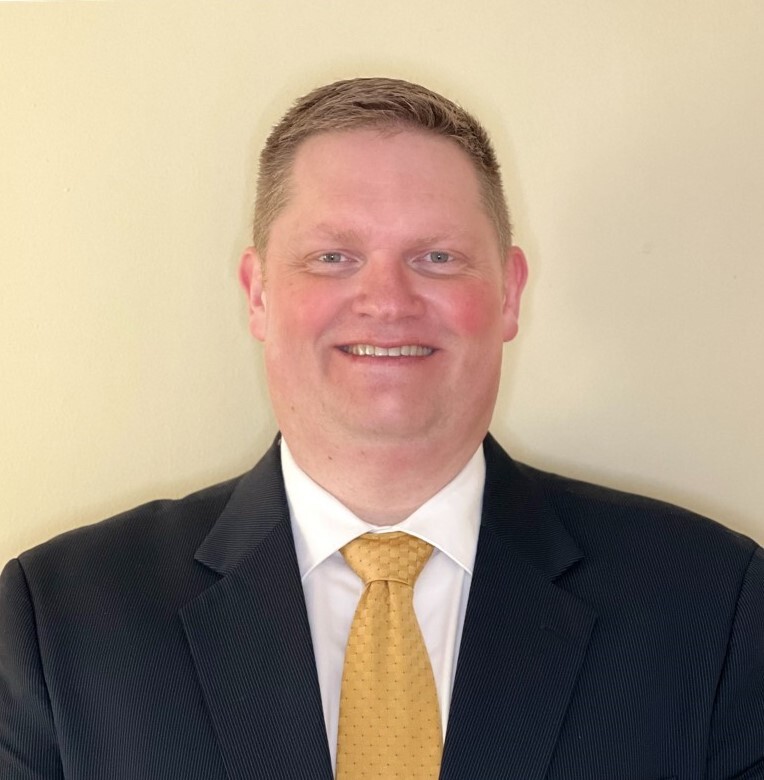
John Lowry, PhD
Associate Professor of Education, Director of Faculty Development
Central Michigan University College of MedicineDr. John Lowry is the Director of Faculty Development and an Associate Professor of Education at Central Michigan University (CMU) College of Medicine. He is also the assistant director of the CMU Academy of Medical Educators. Dr. Lowry has a bachelor’s degree in sports medicine from Brigham Young University, a master’s degree in exercise science from the University of Oregon, and a Ph.D. in higher, adult, and lifelong education from Michigan State University. Prior to coming to CMU, he was an Associate Professor of Kinesiology at Saginaw Valley State University. His research centers on medical education, faculty development, and physician/resident wellness.
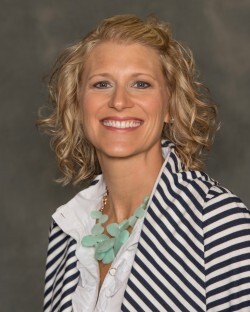
Stacey Pylman, PhD
Associate Professor, Director of Continuing Medical Education
Michigan State University College of Human Medicine, Office of Medical Education Research and DevelopmentDr. Stacey Pylman is an Associate Professor in the Office of Medical Education Research and Development (OMERAD) and Director of Continuing Medical Education (CME) at Michigan State University College of Human Medicine. Dr. Pylman designs and leads a variety of faculty development presentations and programs, including the Academy of Clinicians as Teachers (ACT) Certification Program. She works faculty across the nation on teaching and learning development that focus on effective teaching strategies, precepting skills, and active student learning. She is engaged in research on faculty development, effective teaching in medical education, and clinician-educator identity development. Dr. Pylman was awarded the 2022 AAMC-CGEA M. Brownell Anderson Early Career Educator Award for her teaching and scholarship. She is the Mentor Convener of the AAMC-CGEA Faculty Development SIG, The Generalist in Medical Education (TGME) Steering Committee Chair-elect, and manager of the DR-ED Listserv.
-
Contains 2 Component(s) Recorded On: 04/16/2025
This interactive session will introduce a framework for professionalism in AI, designed to provide healthcare professionals with principles for ethical and responsible AI use.
As artificial intelligence (AI) becomes increasingly integrated into healthcare, it presents significant opportunities for improving patient care, expanding treatment options, and enhancing the efficiency of healthcare services. However, AI also introduces complex ethical, legal, and professional challenges that existing guidelines for professional conduct do not fully address.
This interactive session will introduce a framework for professionalism in AI, designed to provide healthcare professionals with principles for ethical and responsible AI use. The framework builds off of 2011 Social Media Professionalism principles and was iteratively developed with international participants. In this interactive webinar, participants will:
- Explore the framework developed to address ethical concerns, bias, and professional responsibility in AI adoption.
- Learn about the research methodology used to create the framework, including expert focus groups and a modified Delphi process.
- Engage in applied case discussions, using real-world scenarios to practice ethical decision-making in AI use.
The framework was developed by researchers from the Equity in Health Systems Lab (EqHS Lab) at the Bruyère Research Institute (University of Ottawa) and the University of Alberta, leveraging expertise in healthcare innovation, ethics, and policy. This session is open to everyone and will provide valuable insights for anyone involved in healthcare or AI development. Join us for a thought-provoking discussion on the evolving role of professionalism in AI and how we can navigate its challenges to ensure responsible and equitable implementation in healthcare.
Janet Corral, PhD
Chair, Western Group on Educational Affairs
Affiliate Professor, Equity in Health Systems Lab, University of Ottawa
Adjunct Professor, University of Calgary
Faculty/Friend of the Wilson Center, University of TorontoDr. Janet Corral is a renowned educator and innovator in medical education. Dr. Corral is Chair of the Western Group on Educational Affairs and holds faculty affiliations at the University of Ottawa (Affiliate Professor in the Equity in Health Systems Lab), the University of Calgary (Adjunct Professor), and the University of Toronto (Friend of The Wilson Center). After starting her career as a high school science teacher, she became a faculty member in Medicine and has since served in multiple senior leadership roles in Canadian and US higher education institutions, including as Associate Dean and Senior Director of Academic Innovation. A recognized innovator, she supported the beginnings of the Entrada consortium, a learning management system now used in medical schools worldwide. She contributes significantly to the open-source ed tech projects, including virtual patient project, OpenLabyrinth.
Her research, published in The Oxford Textbook of Medical Education and leading peer-reviewed journals, focuses on innovative curriculum design, the integration of learning sciences, technology-enhanced learning, health equity, and competency-based education. Dr. Corral has received numerous awards for her contributions to curriculum design, simulation, and educational leadership, including the prestigious AMEE Aspire award for faculty development.
Beyond her academic and leadership roles, Dr. Corral is an active member of the international medical education community. She serves on the Group on Educational Affairs in the Association of American Medical Colleges. She is also a past steering committee member of Best Evidence Medical Education, an international collaboration of the Association of Medical Education of Europe; and the Group on Informatics Resources and the Academies Collaborative within the Association of American Medical Colleges.
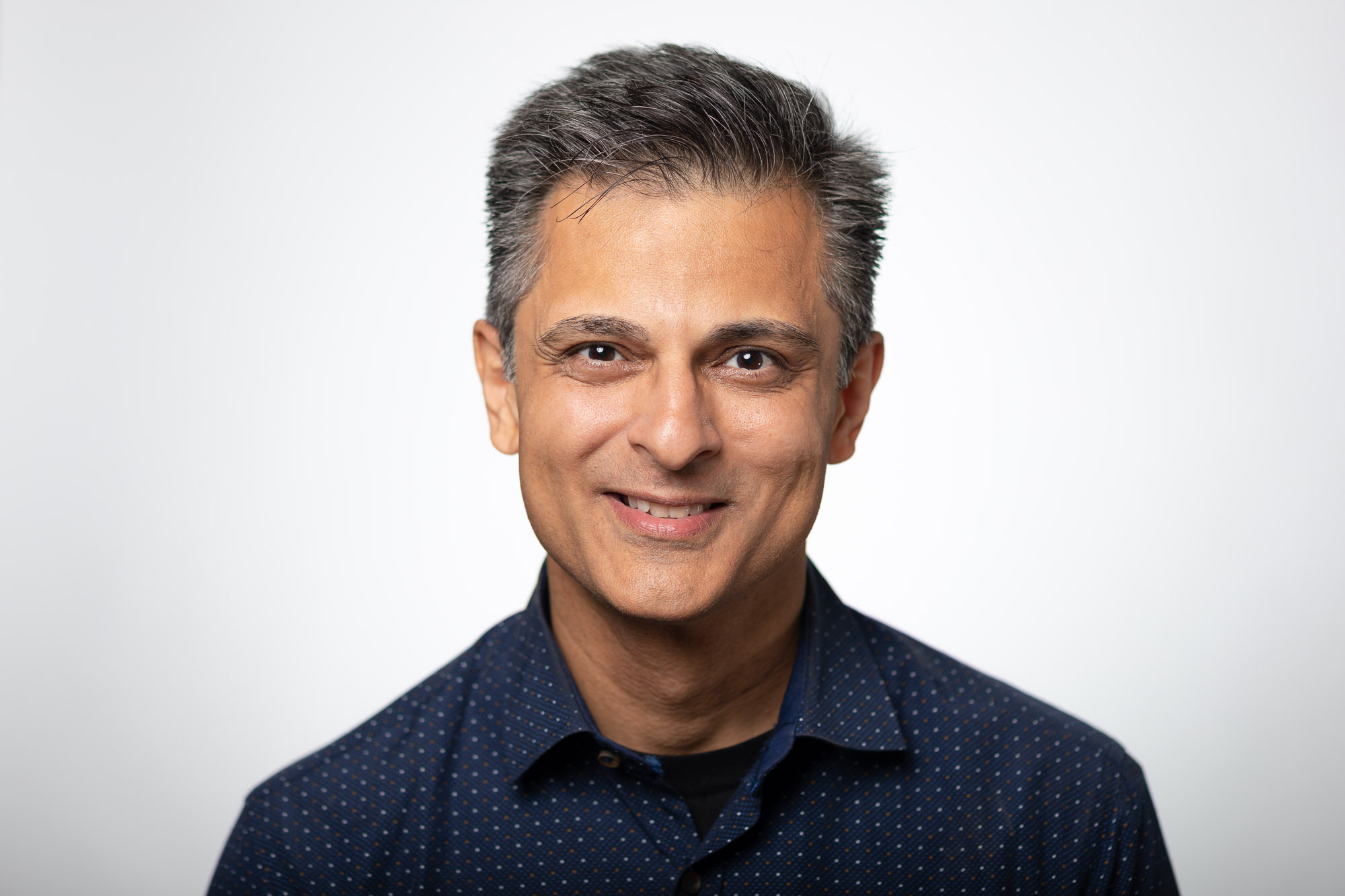
Muhammad Mamdani, PharmD, MA, MPH
Vice President, Data Science and Advanced Analytics, Unity Health Toronto
Odette Chair in Advanced Analytics
Faculty Affiliate, The Vector Institute
Director, University of Toronto Temerty Centre for Artificial Intelligence Research and Education Medicine (T-CAIREM)
Affiliate Scientist, IC/ES
Professor, University of TorontoDr. Mamdani is Vice President of Data Science and Advanced Analytics at Unity Health Toronto and Director of the University of Toronto Temerty Faculty of Medicine Centre for Artificial Intelligence Research and Education in Medicine (T-CAIREM). Dr. Mamdani’s team bridges advanced analytics including machine learning with clinical and management decision making to improve patient outcomes and hospital efficiency. Dr. Mamdani is also Professor in the Department of Medicine of the Temerty Faculty of Medicine, the Leslie Dan Faculty of Pharmacy, and the Institute of Health Policy, Management and Evaluation of the Dalla Lana School of Public Health. He is also an Affiliate Scientist at IC/ES and a Faculty Affiliate of the Vector Institute. In 2024, Dr. Mamdani’s team received the national Solventum Health Care Innovation Team Award by the Canadian College of Health Leaders. Previously, Dr. Mamdani was named among Canada’s Top 40 under 40. He has published over 500 studies in peer-reviewed medical journals. Dr. Mamdani obtained a Doctor of Pharmacy degree (PharmD) from the University of Michigan (Ann Arbor) and completed a fellowship in pharmacoeconomics and outcomes research at the Detroit Medical Center. During his fellowship, Dr. Mamdani obtained a Master of Arts degree in Economics from Wayne State University with a concentration in econometric theory. He then completed a Master of Public Health degree from Harvard University with a concentration in quantitative methods.
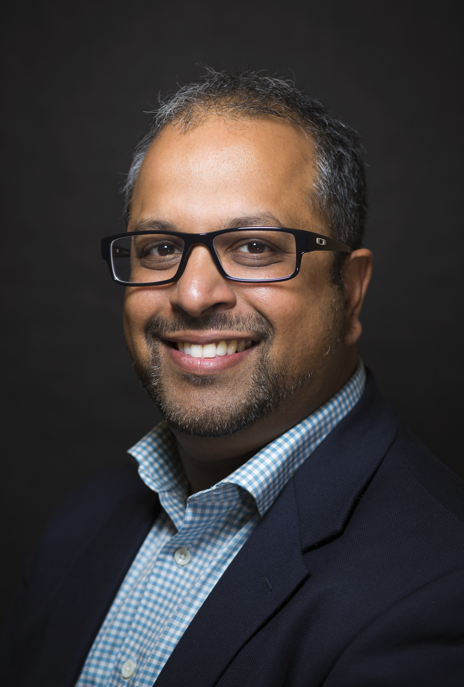
Jerry Maniate, MD, MEd, EMBA, FRCPC, FACP, CCPE, CPC(HC)
Executive Director and Founder, Equity in Health Systems Lab
Physician, Ottawa Hospital
Associate Professor and inaugural Vice Chair of Member Support, Department of Medicine, University of Ottawa EDIA Advisor and Researcher, Bruyère Health Research InstituteDr. Jerry Maniate is the Executive Director and Founder of the Equity in Health Systems Lab. He is also a physician at The Ottawa Hospital, an Associate Professor and inaugural Vice Chair of Member Support in the Department of Medicine at the University of Ottawa, and the EDIA Advisor and researcher at the Bruyère Health Research Institute (BHRI). He is the former Vice President of Diversity, Inclusion, and Education at The Ottawa Hospital. Dr. Maniate has extensive leadership experience in higher education in the health professions and health systems and also with national medical organizations. His work is focused on understanding and addressing inequities in our health systems through collaborative partnerships using a scholarly lens. He is actively engaged and recognized nationally and internationally for furthering the critical dialogue on these important topics.
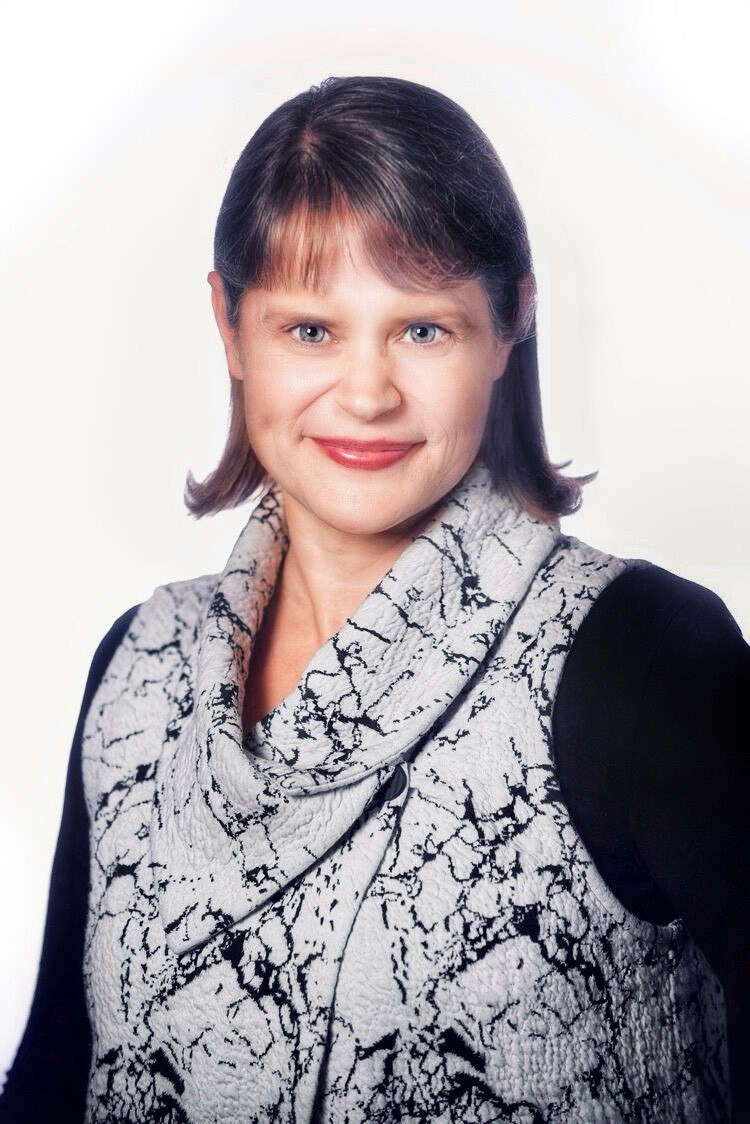
Lyn K. Sonnenberg, MD, HonBSc, MSc, MEd, EMBA, FRCPC
Neurodevelopmental Pediatrician, Clinician Educator
Professor Emeritus of Pediatrics, University of Alberta
Founding Member and Director, Equity in Health Systems LabDr. Lyn K. Sonnenberg is a neurodevelopmental pediatrician, clinician educator, and Professor Emeritus of Pediatrics at the University of Alberta. With extensive experience in health systems leadership, she has served as Associate Dean of Educational Innovation & Academic Technologies, Vice President of the Medical Council of Canada, and National Director of Learning Transformation at the Royal College of Physicians and Surgeons of Canada. As a founding member and Director in the Equity in Health Systems (EqHS) Lab, Dr. Sonnenberg is dedicated to advancing equity-focused approaches in healthcare and education. Her work explores the intersection of artificial intelligence, ethics, and professionalism, emphasizing responsible AI adoption in health and learning environments.
-
Contains 2 Component(s) Recorded On: 04/01/2025
The landscape of medical education selection is evolving, with many medical schools and residency programs exploring artificial intelligence (AI) to enhance their admissions and selection processes.
The landscape of medical education selection is evolving, with many medical schools and residency programs exploring artificial intelligence (AI) to enhance their admissions and selection processes. To support this transformation, the AAMC, in collaboration with its Technical Advisory Committee, has developed a toolkit of resources aligned with our Principles for Responsible Use of AI in Medical School and Residency Selection.
Objectives:
- Learn How to Apply the AAMC’s Principles for Responsible AI Use – Gain insights into the AAMC’s framework for evaluating AI tools in admissions and selection processes, ensuring fairness, transparency, and accountability.
- Discover Practical Resources to Support AI Implementation – Navigate the AAMC’s new toolkit, designed to help institutions responsibly integrate AI into their selection practices while maintaining integrity and equity.
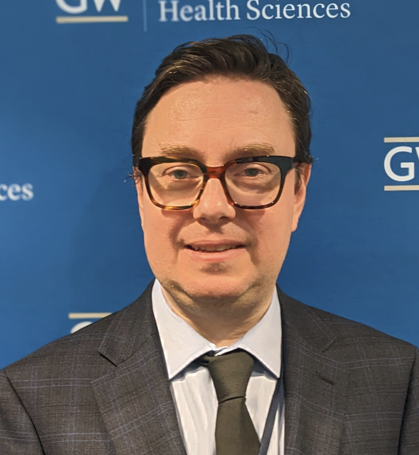
Ioannis Koutroulis, MD, PhD, MBA
Associate Dean of MD Admissions
Co-Director, MD Program Clinical and Translational Research Scholarly Concentration
Associate Professor of Pediatrics, Emergency Medicine, Genomics and Precision Medicine
George Washington University School of Medicine and Health SciencesIoannis Koutroulis, MD, PhD, MBA, is the associate dean of MD admissions at George Washington University School of Medicine and Health Sciences providing overall leadership in medical student admissions and strategic direction and priorities for the admissions program. Additionally, he is the co-Director of the Clinical and Translational Research Scholarly Concentration for the MD program, an Associate Professor of pediatrics, emergency medicine, genomics and precision medicine and a practicing pediatric emergency medicine physician and an NIH-funded principal investigator. He is a widely published scientist, publishing work on sepsis, obesity, and encephalopathy in many high-impact, peer reviewed journals. His research focuses on the use of AI/ML and Natural Language Processing for early identification and treatment of pediatric sepsis. He aims to use the same technology in MD admissions for a fair and efficient selection process. He is the recipient of several research and teaching awards and a member of numerous national committees on research and medical education.
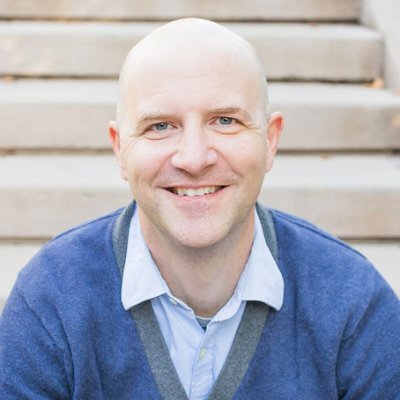
Derek Mracek, PhD
Manager, Analytics and Evaluation
AAMC
Dr. Derek L. Mracek has spent a decade developing innovative assessments for leading global organizations. His contributions have been recognized with an IPAC Innovations in Assessment Award, multiple SHRM Business Impact Awards, and a 2024 Journal of Business Psychology Editor Commendation. He has led product science, data science, and professional services at multiple HR tech startups where he developed and maintained cloud-based services involving AI/ML. At AAMC, he leads efforts focused on the responsible implementation of AI to enhance medical school admissions and residency selection processes. Derek was awarded the Mayo Clinic Scholarship and earned a bachelor's degree in psychology from the University of Minnesota Duluth, a master's degree from East Carolina University, and a doctoral degree in I/O psychology from the University of Oklahoma. Derek has published articles in the Journal of Business and Psychology, Computers in Human Behavior, and Human Factors.
Laurah Turner, PhD
Associate Dean for Artificial Intelligence and Educational Informatics, Assistant Professor of Medical Education, Assistant Professor of Biostatistics, Health Informatics and Data Sciences
University of Cincinnati College of Medicine
Dr. Laurah Turner serves as the Associate Dean for Artificial Intelligence and Educational Informatics and Assistant Professor in the Departments of Medical Education and Biostatistics, Health Informatics and Data Sciences at the University of Cincinnati College of Medicine. She is also the founder and director of 2-Sigma Labs.
Her research focuses on applying artificial intelligence and statistical techniques to enhance medical education, refine assessment methods, and address training disparities. Dr. Turner leads several innovative projects integrating AI into medical education, including systems AI Coaching, personalized learning platforms, and automated curriculum mapping tools.
She serves on the American Association of Medical Colleges Technical Advisory Committee on Artificial Intelligence in Admissions and Selection. Her work is supported by grants from the AMA, APCCMPD, CHEST, and ATS Medical Education Research Award.
Dr. Turner holds a PhD in Biological Anthropology from Indiana University, with extensive experience in statistics and human behavior. Her current research focuses on developing AI systems that enhance human capabilities in medical education while preserving essential human elements of physician training.
She has published extensively in leading medical education journals and holds multiple patents pending for AI tools in medical education. Her work aims to democratize access to high-quality medical education through innovative AI applications while ensuring ethical implementation and educational integrity.
-
Contains 2 Component(s)
The Association of American Medical Colleges (AAMC) is committed to supporting and leading the advancement of AI in academic medicine, with a focus on equitable access and ethical use. By leveraging its strengths of convening, collaborating, and disseminating exemplars to support the field’s advancement of using and implementing AI, the AAMC has supported development of two new resources to guide the community. During this session, speakers will share details about these resources and their expected use, as well as provide a forum for discussion.
The Association of American Medical Colleges (AAMC) is committed to supporting and leading the advancement of AI in academic medicine, with a focus on equitable access and ethical use. By leveraging its strengths of convening, collaborating, and disseminating exemplars to support the field’s advancement of using and implementing AI, the AAMC has supported development of two new resources to guide the community. During this session, speakers will share details about these resources and their expected use, as well as provide a forum for discussion.
The Principles for the Responsible Use of Artificial Intelligence in and for Medical Education provide foundational guidance and key issues to consider as institutions look to integrate AI into medical education by (1) supporting learners along their developmental continuum to responsibly integrate AI into their practice, and (2) building and incorporating AI into medical education tasks, processes, and systems.
The International Advisory Committee for Artificial Intelligence (IACAI) Vision and Integration Frameworks support learners, educators, and institutions across the global medical education continuum by offering concrete recommendations for AI integration at the intrapersonal, individual, institution, national, and international levels across a series of key domains.
Learning Objectives
- Familiarize the academic education community with new guidance to support equitable and responsible utilization of AI.
- Share insight on how to utilize and apply the principles and guidance for proactive action.
- Provide a forum for discussion.

Elissa Hall, EdD, MA (Facilitator)
Director, Advanced Digital Education
Co-Director, Harper Family Foundation Artificial Intelligence Education in Medicine Program
Mayo Clinic Alix School of MedicineDr. Elissa Hall, EdD, MA, is an Assistant Professor, Director, Learning and Technology Innovation, and Associate Director, Education Science for the Mayo Clinic College of Medicine and Science. Dr. Hall serves as the Chair, Association of American Medical Colleges Central Group on Education Affairs (AAMC CGEA), Course Director, Harvard Macy Institute(HMI), and Outreach, The Generalists in Medical Education(TGME). She is passionate about teaching, learning, and technology and fortunate to actively contribute for over 20 years in these areas across the education continuum (secondary, undergraduate, graduate, and health professions education). She loves the outdoors, and you will find her engaging in activities including fat tire biking, paddleboarding, and running.
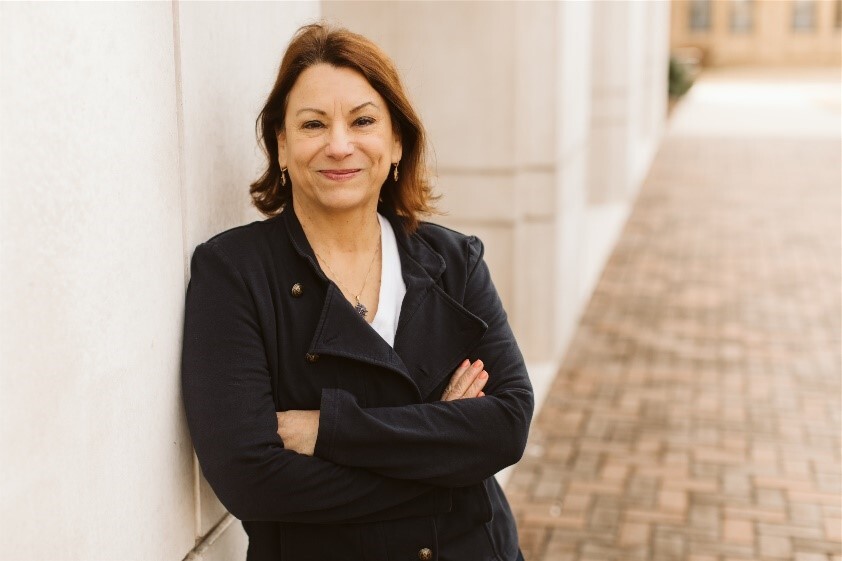
Lise McCoy, EdD, MTESL
Director, Faculty Development
Department of Academic Affairs, New York Institute of Technology
College of Osteopathic Medicine at Arkansas State UniversityLise McCoy, EdD, serves as the Director of Faculty Development and Assistant Professor at the New York Institute of Technology College of Osteopathic Medicine. With a deep interest in medical education innovation, active learning, clinical reasoning, and patient-centered care, Dr. McCoy has helped design many cutting-edge educational programs and tools. These initiatives, funded by HRSA, AACOM, and AMA, have advanced faculty development, virtual patient simulations, interprofessional education (IPE), and game-based learning. Currently, Dr. McCoy is co-designing an AI certification course for the International Association of Medical Science Educators (IAMSE) and developing an AI Integration Framework for the International Advisory Committee on Artificial Intelligence (IACAI).
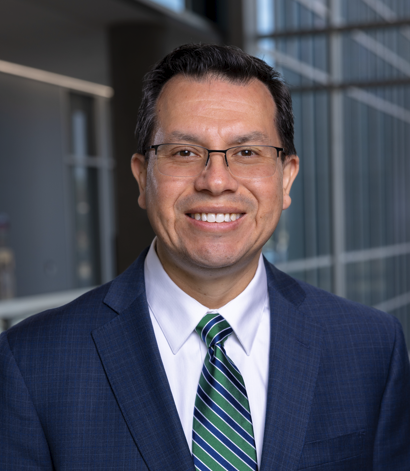
Diego Niño, MD, PhD
Associate Professor of Physiology
Department of Medical Education
University of Texas at Tyler School of MedicineDiego F. Niño, MD, PhD is an Associate Professor of Physiology in the Department of Medical Education at The University of Texas at Tyler School of Medicine in Tyler, TX. In addition to his faculty role, he serves on the USMLE Physiology and Cell Biology Test Material Development Committee for the National Board of Medical Examiners (NBME). Dr. Niño is a scholar and faculty of the Harvard Macy Institute Transforming your Teaching using Technology Course and a founding member of the International Association of Medical Science Educators (IAMSE) Artificial Intelligence subcommittee. His academic and research interests are focused on developing and implementing innovative strategies to deliver technology-enhanced educational experiences within the medical education curriculum. He focuses on advancing medical education through implementing active learning strategies, creating interactive tools that enhance student learning, incorporating educational technology and artificial intelligence.

Alison J. Whelan, MD, FACP
Chief Academic Officer
AAMC
Alison J. Whelan, MD oversees efforts that prepare and assist deans, faculty leaders, educators, and future physicians for the challenges of 21st century academic medicine. She leads a staff that addresses critical medical school data, administrative, and operational issues; explores new models of successful mission alignment; focuses on key student and faculty issues; transforms current models of education and workforce preparation across the full continuum of medical education; and supports medical school accreditation activities.
Prior to joining the association in 2016 as Chief Medical Education Officer, Dr. Whelan served as Professor of Medicine and Pediatrics at Washington University School of Medicine in St. Louis. She held multiple education roles: course director, clerkship director, curriculum dean and ultimately was appointed the inaugural Senior Associate Dean for Education. In this role she oversaw the continuum of medical education from medical school admissions through CME.
Dr. Whelan received her bachelor’s degree from Carleton College in 1981. She earned her medical degree from Washington University in 1986 and completed her postgraduate work and residency at the former Barnes Hospital, now Barnes-Jewish Hospital. Dr. Whelan is an internist and clinical geneticist.
-
Contains 2 Component(s) Recorded On: 10/31/2024
During this session, national leaders from the AAMC and the AMA will discuss the implications of artificial intelligence on how we work in medical education and what we expect of our learners in this evolving landscape. Join us to consider this new revolution, discuss current challenges, and future opportunities for AI in medical education.
AI is transforming the practice of medicine and education in myriad ways. Advances in AI are impacting not only how we work in medical education, but also what learner competencies we teach and assess – students, residents, faculty. During this session, national leaders from the AAMC and the AMA will discuss the implications of artificial intelligence on how we work in medical education and what we expect of our learners in this evolving landscape. Join us to consider this new revolution, discuss current challenges, and future opportunities for AI in medical education.
Session Objectives:
1. Describe the urgency to include training about AI in all medical education programs
2. Discuss physician competencies in AI needed for today and tomorrow
3. Define Precision Education
4. Outline opportunities to leverage AI to improve the process of health professions education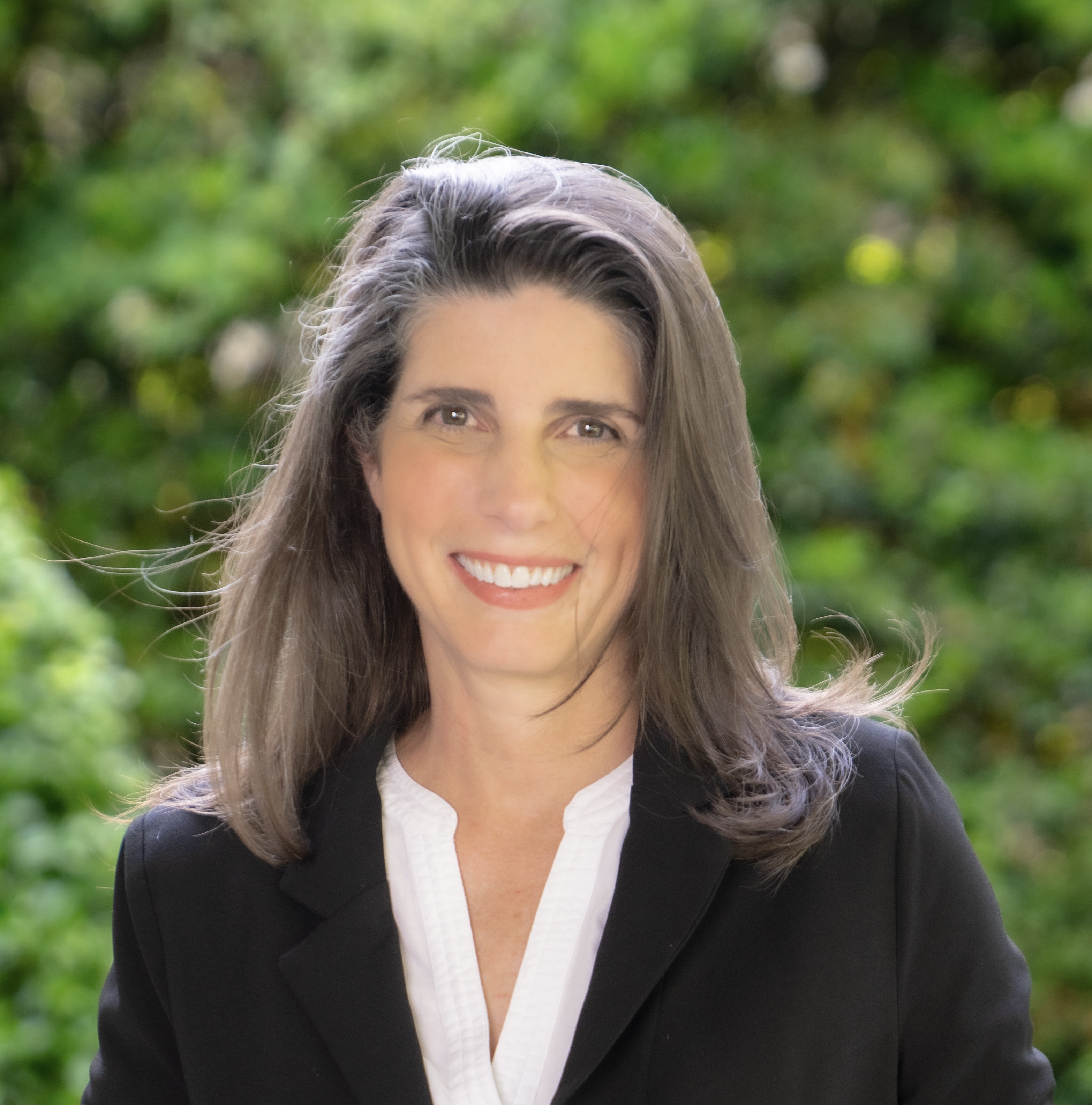
Lisa Howley, Ph.D., M.Ed.
Senior Director, Transforming Medical Education in Academic Affairs
AAMC
Lisa Howley is an Educational Psychologist in the field of medical education. As the Senior Director for Transforming Medical Education at the Association of American Medical Colleges, she leads a diverse team that supports learners and faculty, conducts research, develops and evaluates curricula. She joined the AAMC in 2016 to advance the continuum of medical education, support experiential learning, the integration of arts and humanities into educational programs, and competency based education across its member institutions and their clinical partners. Prior to joining the AAMC, she spent eight years as the Associate DIO and AVP of Medical Education and Physician Development for Carolinas HealthCare System. In that role, she led a number of medical education initiatives across the professional development continuum, including graduate medical education accreditation, as well as physician leadership development for the large integrated healthcare system. She holds an adjunct faculty appointment at the University of North Carolina Chapel Hill School of Medicine. She began her career as a member of the medical education faculty at the University of Virginia School of Medicine in the mid-1990s where she designed and led performance-based assessments and simulation-enhanced curricula. She received her Bachelor’s degree in Psychology from the University of Central Florida, and both her Master of Education and Ph.D. in Educational Psychology from the University of Virginia.
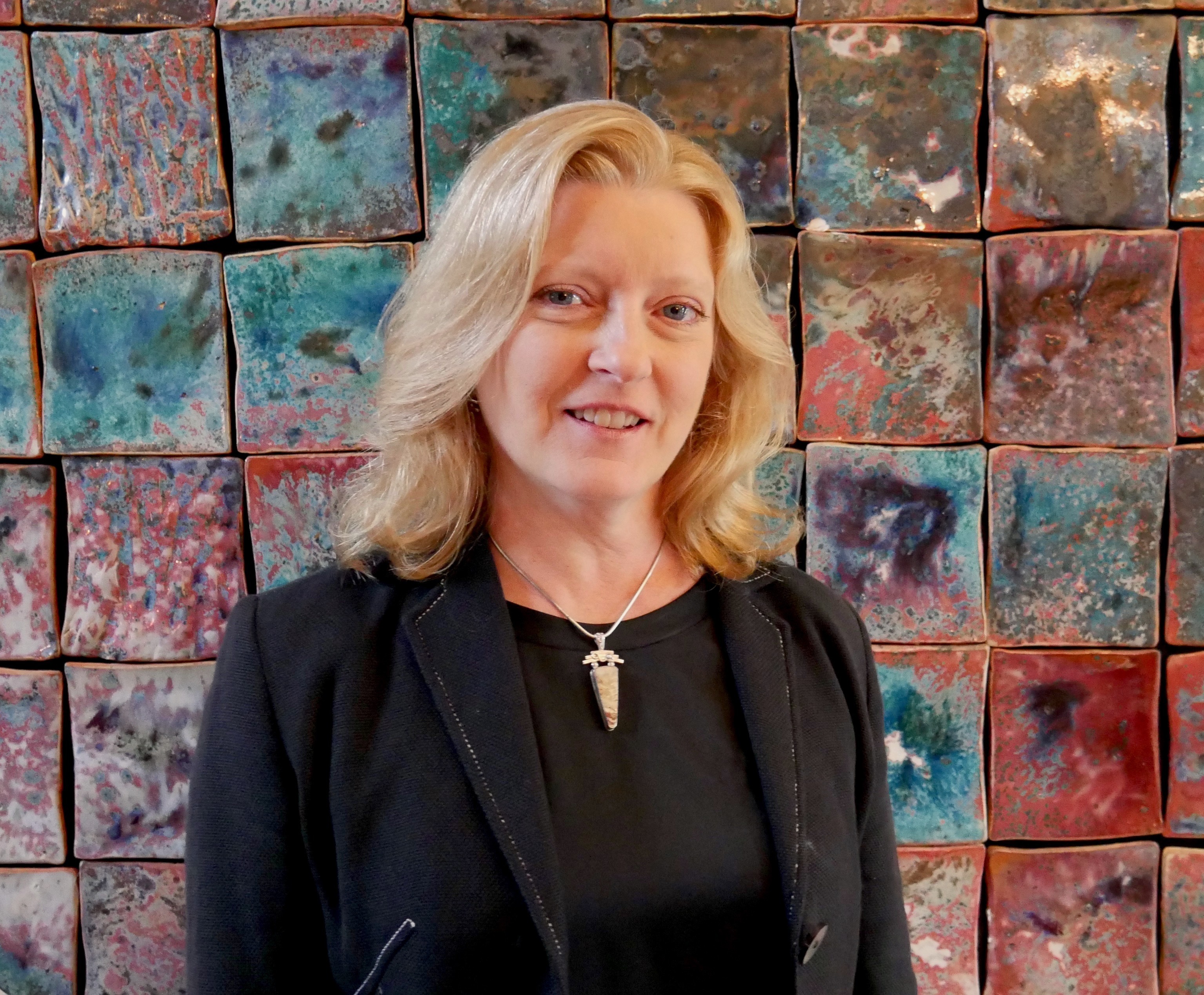
Kimberly Lomis, MD
Vice President, Medical Education Innovations
American Medical Association
Kimberly D. Lomis, MD, is Vice President for Medical Education Innovations at the American Medical Association. In that capacity, she guides the AMA ChangeMedEd® Initiative, partnering with medical schools, GME and CPD programs to impact over 30,000 medical learners across the United States. Themes of collaborative work and advocacy efforts among the institutions engaged in the initiative include competency-based medical education, training in health systems science across the continuum, value-added roles for learners, development of master adaptive learners, coaching for health professionals, promoting diversity of the physician workforce and inclusive environments, addressing learner & faculty wellbeing, advancing educational technology and AI in medical education, and change management. Dr. Lomis will oversee AMA’s Precision Education portfolio of projects leveraging data and technology to personalize and enhance medical education across the continuum.
Dr. Lomis previously served as Professor of Surgery and Associate Dean for Undergraduate Medical Education at Vanderbilt University School of Medicine, where she was charged with oversight of a major revision of the medical school curriculum and guided the implementation of a competency-based assessment program. Dr. Lomis also served the Association of American Medical Colleges as the Associate Project Director for the national pilot of the Core EPAs for Entering Residency and was active in the AAMC Group on Educational Affairs as chair of the Section on Undergraduate Medical Education and member of the GEA steering committee.
Dr. Lomis received her B.S. from the University of Texas at Austin in 1988 and her M.D. from the University Texas Southwestern Medical School in 1992. She trained in general surgery at Vanderbilt University Medical Center from 1992-1997. She holds a graduate certificate in the Business of Medicine from Johns Hopkins and is a Harvard Macy Institute Scholar.
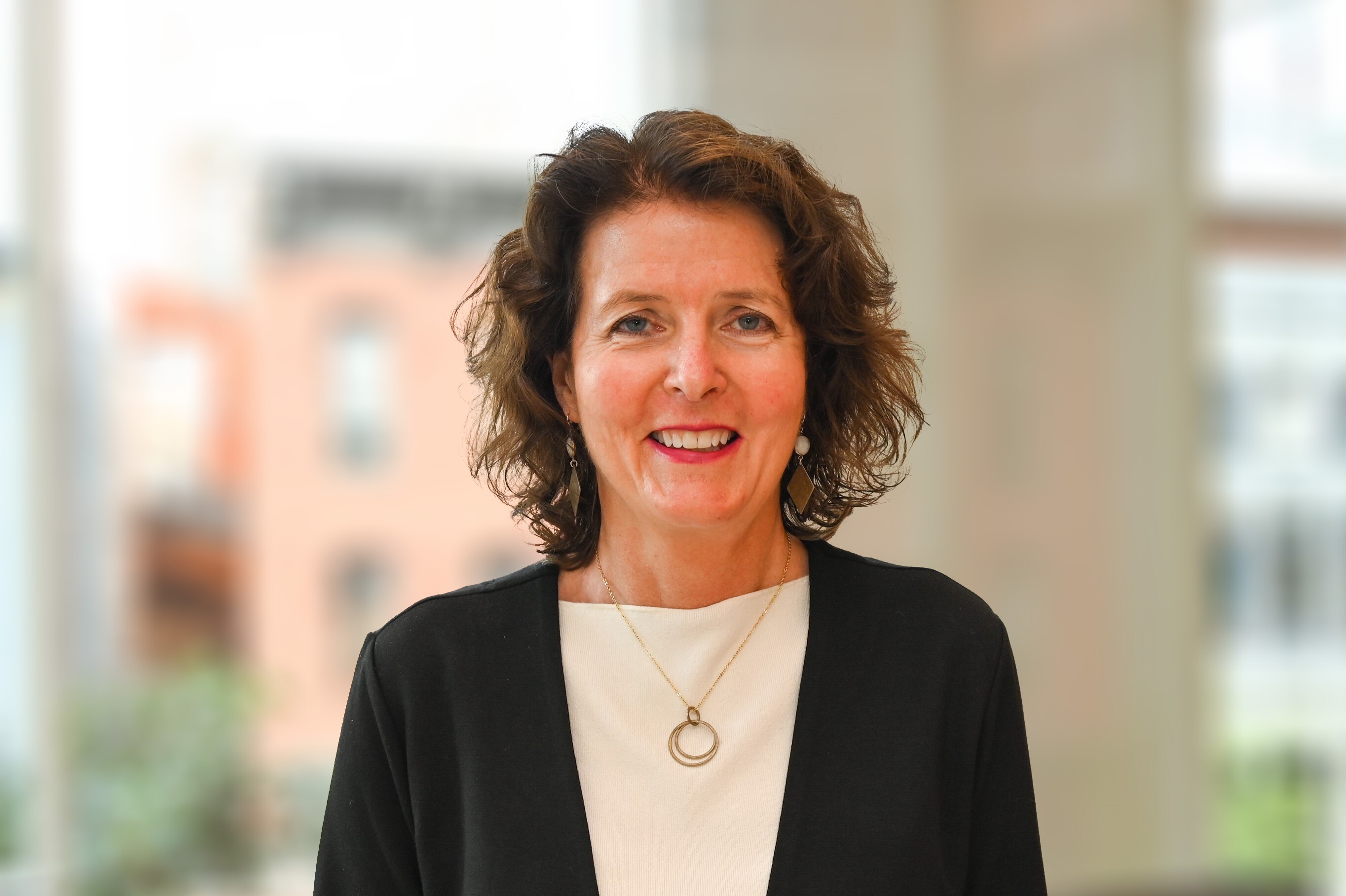
Alison J. Whelan, MD, FAC
Chief Academic Officer
AAMC
Alison J. Whelan, MD oversees efforts that prepare and assist deans, faculty leaders, educators, and future physicians for the challenges of 21st century academic medicine. She leads a staff that addresses critical medical school data, administrative, and operational issues; explores new models of successful mission alignment; focuses on key student and faculty issues; transforms current models of education and workforce preparation across the full continuum of medical education; and supports medical school accreditation activities.
Prior to joining the association in 2016 as Chief Medical Education Officer, Dr. Whelan served as Professor of Medicine and Pediatrics at Washington University School of Medicine in St. Louis. She held multiple education roles: course director, clerkship director, curriculum dean and ultimately was appointed the inaugural Senior Associate Dean for Education. In this role she oversaw the continuum of medical education from medical school admissions through CME.
Dr. Whelan received her bachelor’s degree from Carleton College in 1981. She earned her medical degree from Washington University in 1986 and completed her postgraduate work and residency at the former Barnes Hospital, now Barnes-Jewish Hospital. Dr. Whelan is an internist and clinical geneticist.
-
Contains 2 Component(s) Recorded On: 09/24/2024
This panel webinar will provide a practical approach to creating AI focused partnerships, including advice, lessons learned, and best practices.
This panel webinar will provide a practical approach to creating AI focused partnerships, including advice, lessons learned, and best practices. Specific examples of how various sized institutions have developed collaborations with industry and government partners to harness the power of AI in medicine will be shared by each panelist, including questions for other institutions to consider when thinking about entering their own partnerships.
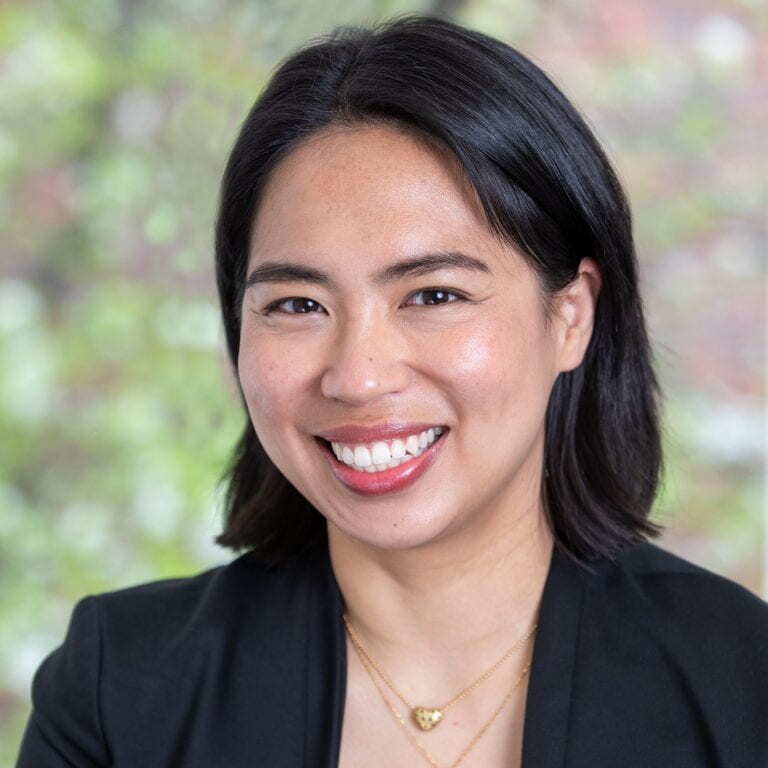
Jennifer Chow, MBA, MA
Director of External Engagement
Harvard Data Science Initiative
Jennifer Chow is the Director of External Engagement for the Harvard Data Science Initiative. In this role, she leads external strategy for the HDSI. She directs the HDSI’s industry relations through the HDSI Corporate Membership Program, including aligning conversations with the University Development Office, the Office of Technology Development, the Office of Sponsored Programs, and other constituents across Harvard.
Jen brings over a decade of experience in fundraising and development for major research organizations. Prior to joining the HDSI, Jen was Director of Foundation and Corporate Development for Harvard’s Office of the Vice Provost for Research, where she oversaw over $35M in new funding to the university across a broad portfolio of philanthropic gifts and sponsored research grants to faculty. She also advised University leadership on policies related to corporate and foundation partners, establishing new models for engagement.
Jen has also held roles in fundraising and development for the Harvard Faculty of Arts and Sciences, the Broad Institute of MIT and Harvard, and Dana-Farber Cancer Institute. She received her MA in Chemistry from Boston University and her MBA from the Simmons College School of Management, where she was a Forte Fellow and a member of Beta Gamma Sigma.

Jamie Fairclough, PhD, MPH, MS
Associate Dean and Professor
Roseman University College of Medicine
Dr. Jamie Fairclough is the Associate Dean, Professor, and Director of the Data Science & Engineering Unit at Roseman University College of Medicine in Las Vegas, NV, and an Adjunct Professor of Data Science at Noorda College of Osteopathic Medicine in Provo, UT. At Roseman, she leads a team that implements, leverages, and evaluates scalable data systems, cloud solutions, and artificial intelligence (AI) platforms and prototypes for the medical school. Dr. Fairclough teaches AI, machine learning, epidemiology, and biostatistics courses at the graduate level and pre-college machine learning and epidemiology/disease modeling courses as an instructor at both Stanford University and Johns Hopkins University. She has held academic medicine/pharmacy faculty positions at Florida International University, Florida State University, and Palm Beach Atlantic University, and she previously managed a statewide surveillance system for the Florida Department of Health. Dr. Fairclough received her BS, MPH, and MS degrees from the University of Florida and her PhD degree from Florida State University. She completed an NIH postdoctoral fellowship at Duke University Medical Center as well as additional graduate/postgraduate training in systems engineering (Johns Hopkins), data engineering (University of Chicago), AI and machine learning (University of Texas at Austin), AI engineering (Carnegie Mellon), healthcare AI (Harvard Medical School), business AI and digital leadership (University of Pennsylvania), and systems leadership (Stanford). Most recently, Dr. Fairclough was invited to serve on the FY25 AAMC MedBiquitous Steering Committee, the American Board of Artificial Intelligence in Healthcare, the International Advisory Committee for Artificial Intelligence, and the Royal Statistical Society (UK) AI Task Force.
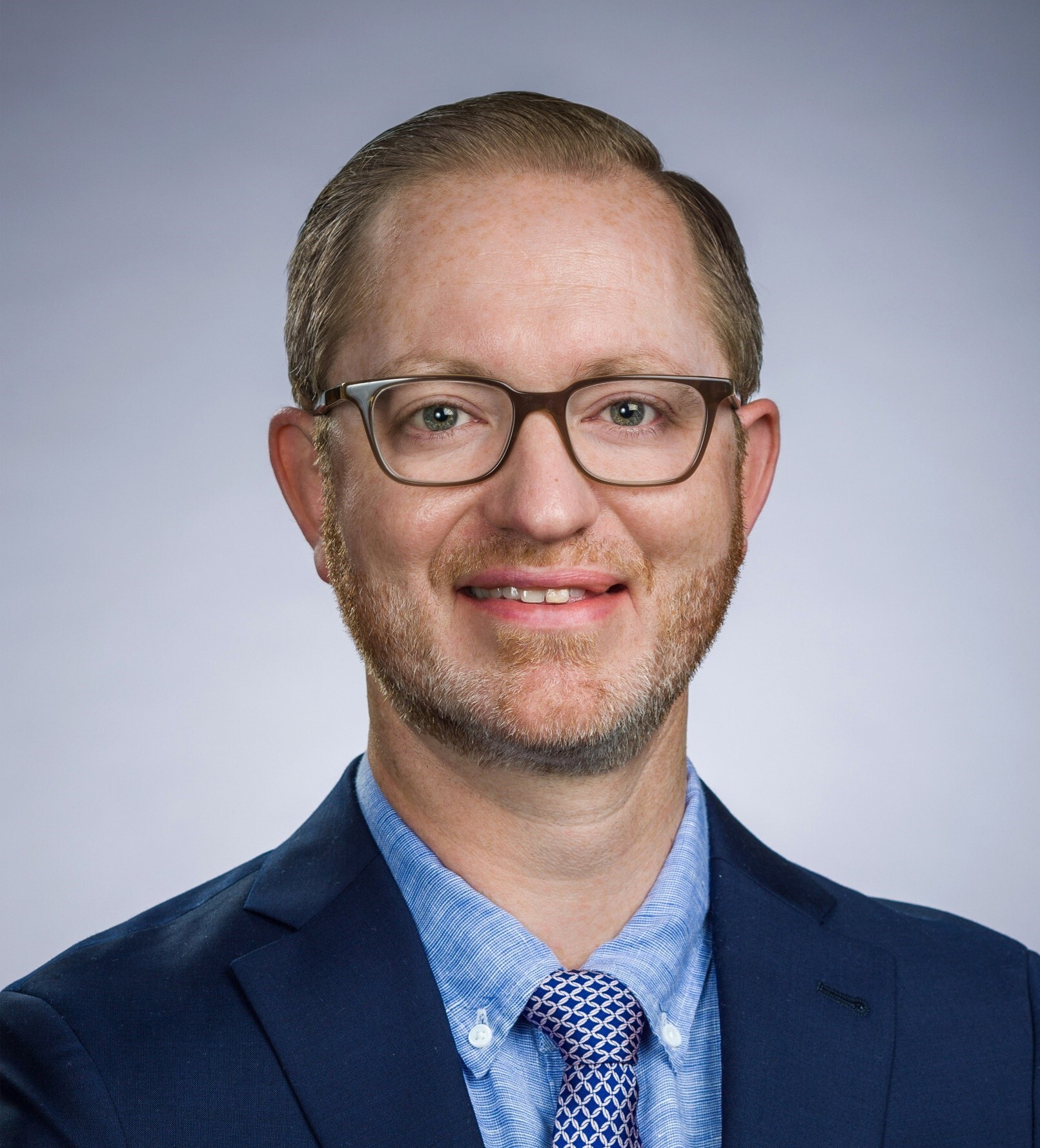
Geoff Stetson, MD
CEO and Co-Founder, MedEdMentor LLC
Associate Professor of Medicine and Medical Education, University of Illinois College of Medicine
Geoff Stetson, MD, is an Associate Professor of Clinical Medicine and Medical Education at the University of Illinois Chicago (UIC) College of Medicine. Dr. Stetson went to Brown University for his undergraduate education, the University of Chicago for his MD, and UCSF for his internal medicine training with a focus on primary care for underserved and vulnerable populations. Geoff stayed on faculty at UCSF until he moved to UIC in April 2022.
Geoff has a decade of experience training others to be better teachers in clinical settings and currently serves as the Director of Clinical Faculty Development at UIC. Recently, he was selected as a Macy Faculty Scholar, a program “designed to identify and nurture the careers of promising educators in medicine and nursing.” Geoff is also the CEO and co-founder of MedEdMentor, an AI-supported platform that guides health professions educators through the fundamental steps of scholarship and research.
-
Contains 2 Component(s) Recorded On: 09/10/2024
In this webinar, speakers with experience as researchers and publishers will address the opportunities and challenges that AI affords to scholars and the scholarly publishing process.
AI is changing scholarly publishing. In this webinar, speakers with experience as researchers and publishers will address the opportunities and challenges that AI affords to scholars and the scholarly publishing process. They’ll explore when and how scholars can use AI tools in writing up and publishing their research and scholarship, including considerations and practical suggestions for how to do so responsibly.

Chhavi Chauhan, PhD, ELS
Director of Scientific Outreach
American Society for Investigative Pathology
Dr. Chhavi Chauhan is Director of Scientific Outreach at the American Society for Investigative Pathology, a Program Manager for the Women in AI Accelerate & Raise Program, and serves on the boards for various mission-driven organizations in the spheres of scholarly publishing, digital pathology, AI ethics, & youth education. She is a former biomedical researcher, expert scholarly communicator, and a sought-after mentor in the fields of scientific research, scholarly publishing, and AI ethics, especially for women and those from underrepresented groups. She has gathered several awards and accolades in each of these domains. She is a thought leader, a renowned international speaker, and a strong advocate for equitable and accessible health care.
Tom Ciavarella
Head of Public Affairs and Advocacy, North America
Frontiers Media
Tom Ciavarella is the head of Public Affairs and Advocacy in North America for Frontiers, a Gold Open Access publisher working to make science open so that researchers can collaborate better and innovate faster. Tom oversees government relations in the United States and Canada and works with key stakeholders on improving science and technology policy. He is formerly manager of Publisher Relations for the Web of Science Group (part of Clarivate) and runs a consultancy that works with startups and STM publishers. He lives in Chicago.
-
Contains 2 Component(s) Recorded On: 08/27/2024
Panelists will share their knowledge and experiences on integrating AI into various aspects of research and innovation. Attendees will gain a deeper understanding of how AI can enhance data analysis, improve learning outcomes, and foster innovative solutions to complex challenges in the healthcare sector.
Panelists will share their knowledge and experiences on integrating AI into various aspects of research and innovation. Attendees will gain a deeper understanding of how AI can enhance data analysis, improve learning outcomes, and foster innovative solutions to complex challenges in the healthcare sector. Each presenter will provide unique insights and practical examples of AI applications in their respective fields, offering valuable perspectives on the future of AI-enabled research. Discover how these advancements might be harnessed to drive innovation and excellence in your own organization.

Mark Cohen, MD, FACS, FSSO
Dean, Carle Illinois College of Medicine
Senior Vice President and Chief Academic Officer, Carle Health
Mark Cohen, MD, FACS, FSSO is the Dean of the Carle Illinois College of Medicine and Senior Vice President and Chief Academic Officer for Carle Health. He is a practicing surgical oncologist and endocrine surgeon and a tenured professor in the College of Medicine and the Founder Professor in the Department of Bioengineering in the Grainger School of Engineering. His research covers several areas including novel approaches to tissue engineering utilizing stem cells; creation of a novel class of anticancer drug compounds that target chaperone proteins; nanoparticle drug-delivery systems for cancer and bone regeneration; and use of mixed reality and AI/ML technologies to improve telemedicine, clinical care delivery as well as health care workforce training and education. He has been continuously funded by the NCI (NIH) for 17 years and his work has also been funded by the National Science Foundation, the Komen Foundation, the American Cancer Society, the Department of Defense, and even NASA. He has published over 135 peer reviewed manuscripts and has held multiple leadership roles in national medical and surgical societies and is a founding member of the international holomedicine association. He is also a serial entrepreneur founding 5 companies in the digital health, medical device, and medical therapeutics sectors and has mentored over 300 students and faculty on innovation projects and startups. He is the author of a textbook on Surgical Innovation in Academic Medicine published through Springer-Nature. For his work in AI and mixed reality applications in medical education he was awarded the 2019 Distinguished Faculty Award for Innovation and the 2021 Provost Award for Innovation in Education at the University of Michigan. He co-leads the collaborative NSF IUCRC Center grant focused on Medical Innovations in eXtended Reality (MIXR) between University of Maryland Research Park, University of Maryland Shock Trauma Hospital, University of Michigan, and University of Illinois along with several industry partners. He is also the founder and inaugural President of the new Global Consortium of Innovation and Engineering in Medicine, an international collaborative of over 30 medical and engineering schools around the world along with government ministries of health, regulatory agencies, and foundations and several international biotech companies coming together through the consortium as the premier collaborative global network to advance medicine through the intersection of engineering and innovation.
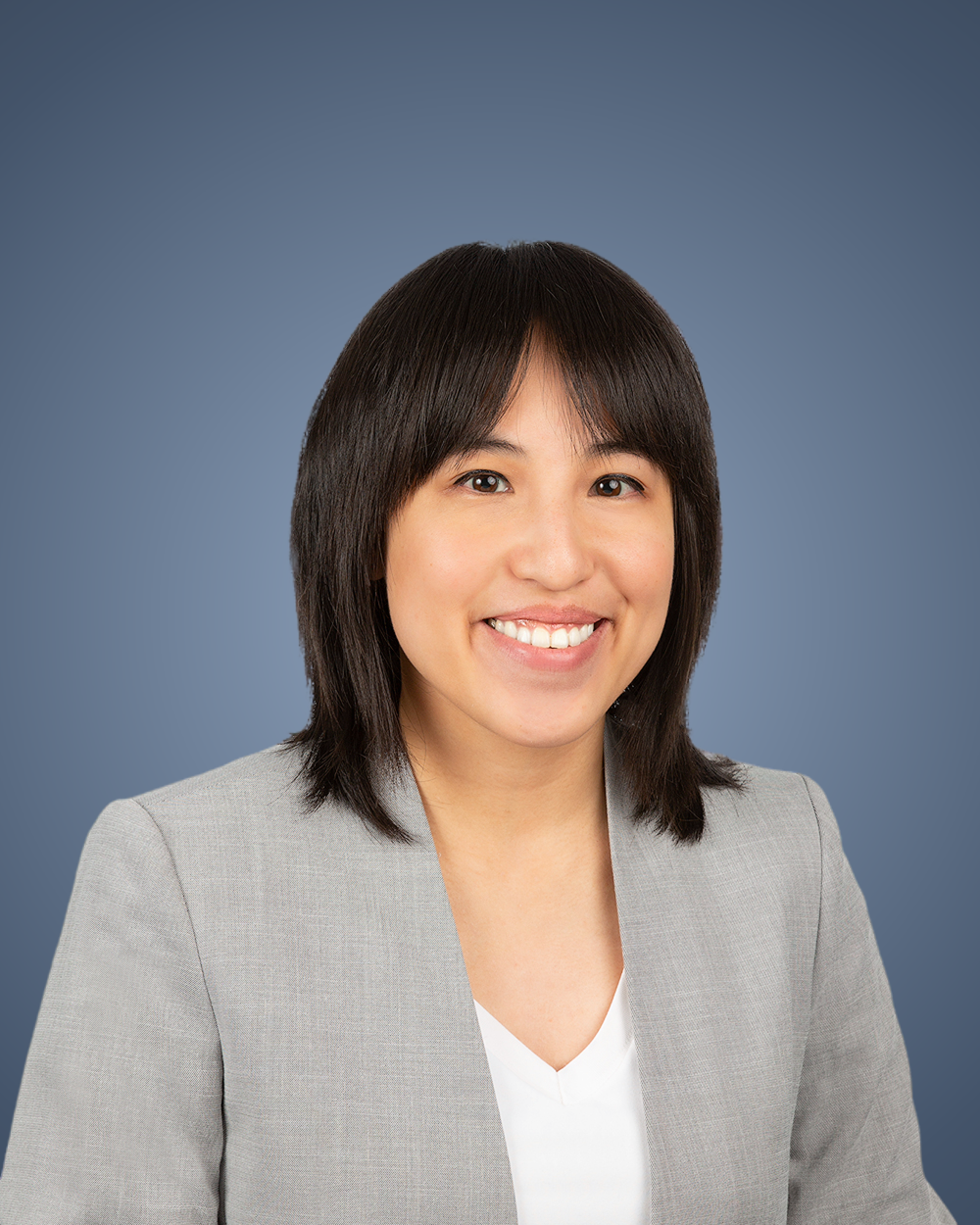
Florence Doo, MD, MA
Director of Innovation at the University of Maryland Medical Intelligent Imaging (UM2ii) Center
Assistant Professor in the Department of Radiology and Nuclear Medicine at the University of Maryland, Baltimore
Florence Doo, MD, MA, is the Director of Innovation at the University of Maryland Medical Intelligent Imaging (UM2ii) Center and an Assistant Professor in the Department of Radiology and Nuclear Medicine at the University of Maryland, Baltimore. She completed her radiology residency at Mount Sinai West and dual fellowships in Body Imaging at Stanford University and Informatics through the American College of Radiology (ACR). Dr. Doo’s research focuses on clinical informatics and applications of artificial intelligence (AI) to improve radiology service delivery and healthcare outcomes. She is grant-funded by AAR CERRAF, the UMMC Innovation award for a clinical LLM tool, and an NIH MHHD P50 Center sub-project grant.

Gustavo A. Patino, MD, PhD
Associate Dean for UME
Western Michigan University Homer Stryker M.D. School of Medicine
Dr. Patino received his MD and was a neurology resident in his home country of Colombia, after which he pursued doctoral and postdoctoral training in neuroscience at the University of Michigan. He has been a medical educator for the past 14 years and currently is an associate professor in the Department of Medical Education and the associate dean for undergraduate medical education at the Western Michigan University homer Stryker M.D. School of Medicine in Kalamazoo, Michigan. He serves as an assistant editor of the journal Academic Medicine and is a certified TBL consultant through the TBL-Collaborative. His research interests include neuroscience education, assessment, and the application of quantitative methods (including artificial intelligence) in research.
